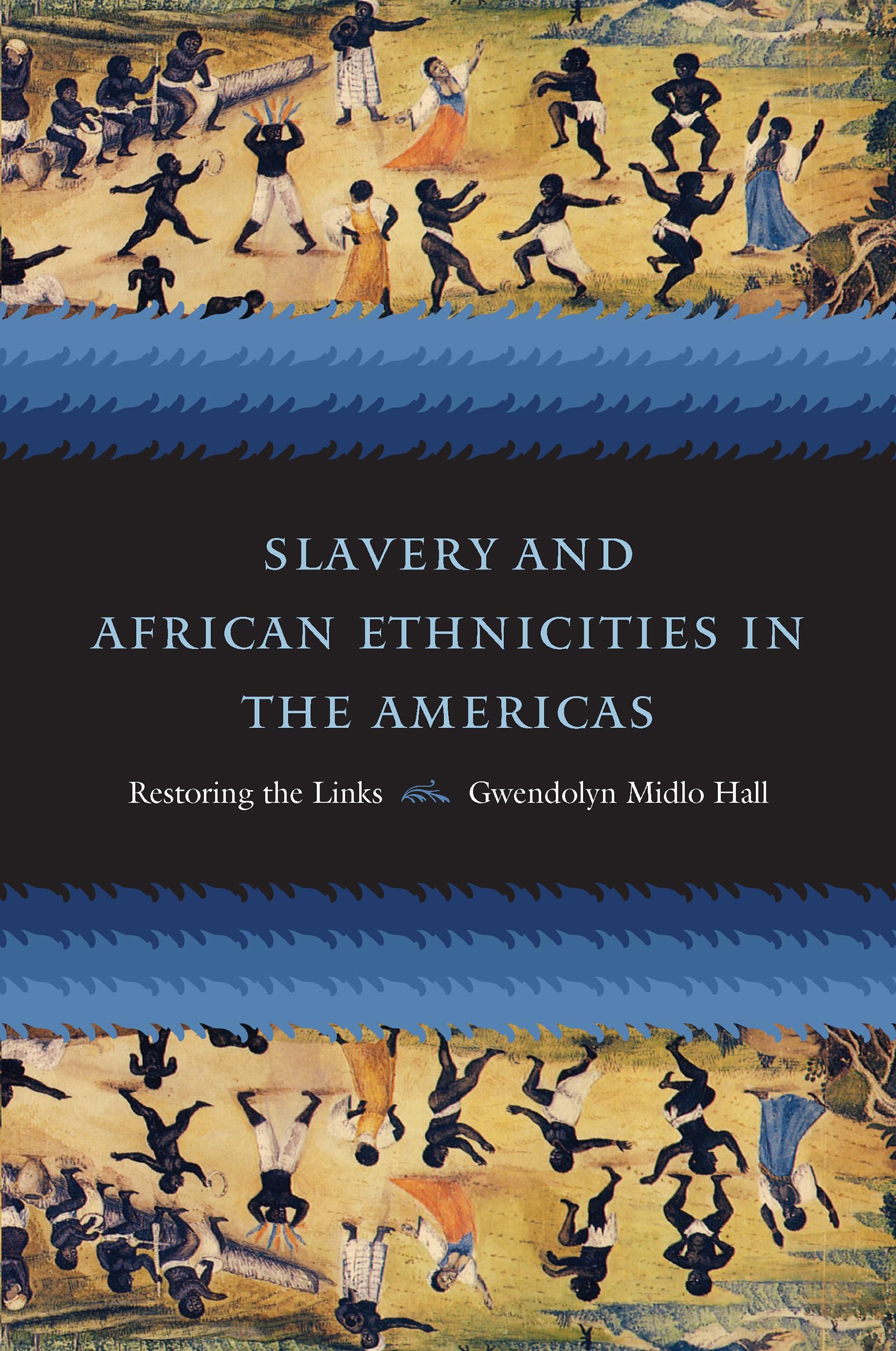
Title

Slavery and African Ethnicities in the Americas: Restoring the Links,New
Delivery time: 8-12 business days (International)
Enslaved peoples were brought to the Americas from many places in Africa, but a large majority came from relatively few ethnic groups. Drawing on a wide range of materials in four languages as well as on her lifetime study of slave groups in the New World, Gwendolyn Midlo Hall explores the persistence of African ethnic identities among the enslaved over four hundred years of the Atlantic slave trade.Hall traces the linguistic, economic, and cultural ties shared by large numbers of enslaved Africans, showing that despite the fragmentation of the diaspora many ethnic groups retained enough cohesion to communicate and to transmit elements of their shared culture. Hall concludes that recognition of the survival and persistence of African ethnic identities can fundamentally reshape how people think about the emergence of identities among enslaved Africans and their descendants in the Americas, about the ways shared identity gave rise to resistance movements, and about the elements of common African ethnic traditions that influenced regional creole cultures throughout the Americas.
By changing our most important processes and
products, we have already made a big leap forward. This ranges from the
increased use of more sustainable fibers to the use of more
environmentally friendly printing processes to the development of
efficient waste management in our value chain.
⚠️ WARNING (California Proposition 65):
This product may contain chemicals known to the State of California to cause cancer, birth defects, or other reproductive harm.
For more information, please visit www.P65Warnings.ca.gov.
Shipping & Returns
Shipping
We ship your order within 2–3 business days for USA deliveries and 5–8 business days for international shipments. Once your package has been dispatched from our warehouse, you'll receive an email confirmation with a tracking number, allowing you to track the status of your delivery.
Returns
To facilitate a smooth return process, a Return Authorization (RA) Number is required for all returns. Returns without a valid RA number will be declined and may incur additional fees. You can request an RA number within 15 days of the original delivery date. For more details, please refer to our Return & Refund Policy page.
Shipping & Returns
Shipping
We ship your order within 2–3 business days for USA deliveries and 5–8 business days for international shipments. Once your package has been dispatched from our warehouse, you'll receive an email confirmation with a tracking number, allowing you to track the status of your delivery.
Returns
To facilitate a smooth return process, a Return Authorization (RA) Number is required for all returns. Returns without a valid RA number will be declined and may incur additional fees. You can request an RA number within 15 days of the original delivery date. For more details, please refer to our Return & Refund Policy page.
Warranty
We provide a 2-year limited warranty, from the date of purchase for all our products.
If you believe you have received a defective product, or are experiencing any problems with your product, please contact us.
This warranty strictly does not cover damages that arose from negligence, misuse, wear and tear, or not in accordance with product instructions (dropping the product, etc.).
Warranty
We provide a 2-year limited warranty, from the date of purchase for all our products.
If you believe you have received a defective product, or are experiencing any problems with your product, please contact us.
This warranty strictly does not cover damages that arose from negligence, misuse, wear and tear, or not in accordance with product instructions (dropping the product, etc.).
Secure Payment
Your payment information is processed securely. We do not store credit card details nor have access to your credit card information.
We accept payments with :
Visa, MasterCard, American Express, Paypal, Shopify Payments, Shop Pay and more.
Secure Payment
Your payment information is processed securely. We do not store credit card details nor have access to your credit card information.
We accept payments with :
Visa, MasterCard, American Express, Paypal, Shopify Payments, Shop Pay and more.
Related Products
You may also like
Frequently Asked Questions
- Q: What is the main topic of 'Slavery and African Ethnicities in the Americas'? A: The book explores the persistence of African ethnic identities among enslaved peoples in the Americas, focusing on how these identities were maintained despite the fragmentation caused by the Atlantic slave trade.
- Q: Who is the author of this book? A: The author is Gwendolyn Midlo Hall, who has conducted a lifetime study on slave groups in the New World.
- Q: How many pages does the book have? A: The book contains 248 pages.
- Q: What type of binding does this book have? A: This book is available in paperback binding.
- Q: When was 'Slavery and African Ethnicities in the Americas' published? A: The book was published on September 19, 2005.
- Q: What condition is the used book in? A: The used book is described as being in good condition.
- Q: What materials does Gwendolyn Midlo Hall draw upon in her research? A: Hall draws on a wide range of materials in four languages, as well as her extensive study of slave groups.
- Q: What is the significance of recognizing African ethnic identities in the context of this book? A: Recognizing African ethnic identities can reshape how we understand the emergence of identities among enslaved Africans and their descendants, influencing perceptions of resistance movements and cultural traditions.
- Q: In which category is this book listed? A: The book is categorized under Caribbean & West Indies.
- Q: What themes are explored in the book regarding cultural ties among enslaved Africans? A: The book examines linguistic, economic, and cultural ties shared by enslaved Africans, highlighting how many ethnic groups retained enough cohesion to communicate and preserve aspects of their shared culture.
